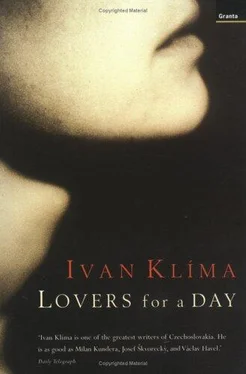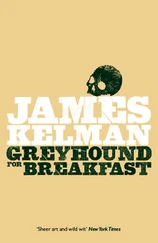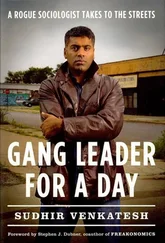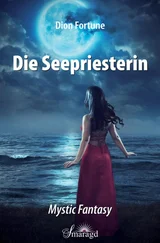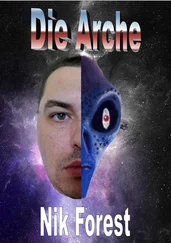She obviously regarded the fact that the journey was foretold as a good omen, or, more accurately, it meant that she could not receive the news other than as confirmation of what was intended to happen. That eased his mind and he started to wonder whether, since he had the rare chance of travelling such a long way, he shouldn't stay there for at least a month. That idea didn't appeal to Leona. What was she supposed to do here while he was off globe-trotting?
'When I come back we'll take a lovely holiday together,' he promised.
'Yes, we'll take a bus ride into the country. That'll be a great holiday. But go where you like, I'm sure I'll find something to do here while you're away.' It sounded like a threat, but he pretended not to have heard, as he disliked quarrels.
Then he returned to his usual routine: rehearsals, performances and scrounging for money, but in addition he had to spend the evenings writing his paper for the conference. He decided to write about small theatres, not simply because they were the ones he was most familiar with, but also because he was convinced that they were the only thing it was possible to say anything interesting about, since only they, if the theatre was going to survive, had any future. The theatre, he maintained, was one of the last places where the spectator could still personally witness the act of creation. However, the big theatres so alienated the audience from the actor, that instead of witnessing the act of creation they could only witness its effect. For a public brought up on television, the theatrical stage was no more than a big TV screen, the only thing special about it
being its three-dimensionality, and technical advances were bound to rob it of that remaining uniqueness before long. By contrast, small theatres facilitated mutual contact. The act of creation had far-reaching implications in today's hypertech world. It had become the only way for the human spirit to escape both the stultifying stereotype of the mundane and the depths towards which it is drawn by the dark forces of that banality that encourages and accumulates within it.
He visited Leona almost every day. During supper about a week before his departure, when he was in the grip of pre-travel nerves, Leona suddenly said to him:
'You mustn't fly there.'
'Fly where?' he gasped.
'You mustn't fly anywhere. You should be extremely cautious about what you do because you have Uranus in your eighth house.'
'So?'
'It's the house of death!'
'How did you figure that out?'
'I went to see my astrologer. After all, I have to consult him when you're planning a journey like that!'
'You know I don't believe in it.' Astrology happened to be one of the dark forces that enticed people into the depths.
'It's immaterial whether you believe it or not. What must happen will happen.'
'And what must happen?'
'Michal,' she said, 'this journey of yours won't turn out well. Apart from that, your Saturn is in opposition to Uranus. My astrologer told me he'd never seen such a depressing constellation.'
'Are you trying to tell me my plane is going to crash?'
'I've no idea what will happen. All I know is that your journey can't turn out well for you.'
'Who has worked this out, you or your ridiculous astrologer?'
'He's not ridiculous. He's one of the best astrologers there is. Everyone says so.'
'Everyone who believes that nonsense.'
'I believe him. Everything he foresaw for me came true.'
'For instance.'
'He foresaw you.'
'He foresaw me?'
'Yes, he told me I'd meet you.'
'That you'd meet me and not just some guy?'
'That I'd meet you.'
'Did he tell you my name?'
She hesitated. 'He said I'd meet a Virgo with strong artistic leanings, and that it would turn out well for me.'
Admittedly the 'strong artistic leanings' flattered him but he had no intention of changing his views about superstitions. 'I don't believe in it. It's quite simple, you do and I don't!'
'So you're determined to fly in spite of the warning?'
'Of course. I've already got my ticket.'
'But something's going to happen to you, for God's sake!'
'Forget about it.'
Then they made love as usual. When he woke up in the night he noticed she was sitting on the bed looking at him. 'What's up?'
'I'm looking at you.' Then she put her arms around him. 'Darling, you mustn't go, you really mustn't. Something will happen to you. Something terrible!' And she burst into tears.
Then they sat together on the divan until morning while he
tried to explain to her that there was either no connection at all between the position of the planets in the heavens and the fate of people on earth, or that it was so insignificant it was outweighed by thousands of other, more important considerations. Besides — it occurred to him — if the position of the planets really was crucial, then all those people born at the same moment would have to have virtually the same fate. And that was clearly nonsense. Or was she trying to tell him that everyone boarding that aircraft had Uranus in their house of death?
She told him she wasn't saying anything about the plane, only about him.
But if some calamity was awaiting him, he would be just as likely to encounter it here as in the antipodes.
No, she was here to protect him. Besides, the astrologer had told her he definitely shouldn't fly.
It struck Michal that Leona simply didn't want to let him go, that she was jealous of his trip and it so incensed him he started to shout at her.
She started to weep hysterically. The way actresses know how to.
At that afternoon's rehearsal (they were preparing a programme of Tibetan poetry), she had recited the verses: You can tell wise men from fools because they see things that have not yet come, although come they surely must. She said the words with such emphasis that there could be no doubting who the message was intended for. Most likely all the company already knew that Uranus resided in his house of death and that in spite of it he was determined to fly to his doom. He certainly had the impression that they were looking at him as if seeing him alive for the last time.
He had to change in London to catch the Australian airline s plane. When he first caught sight of the enormous jumbo jet through the glass of the terminal (he had never even set eyes before on such a colossus, let alone flown in one), it struck him as unbelievable that such a gigantic heap of metal could fly at all. And if it did (as it undoubtedly could) then it must be particularly vulnerable. This thought about its vulnerability naturally had nothing to do with any ridiculous astrological superstitions, it was something that must inevitably strike anyone boarding a transoceanic plane of that size. Even so it was statistically proven that air travel is by far the safest form of transport, and since tens of millions of passengers travelled that way every year, a good few thousand of them were bound to have Uranus or some other planet in their house of death. Although it was also a fact that planes did crash from time to time — due to some technical fault, of course, not because some of the passengers had Uranus or Saturn. . He decided he would quite simply stop thinking about Uranus in his death house and joined the queue of those waiting to expose their luggage and themselves to the all-seeing rays. He noticed that the man in front of him had his hat pulled down low over his eyes and that he had dark glasses and a broad criminal chin. He looked just like a screen or stage gangster (Michal must have encountered real live gangsters on many occasions in the past, but their criminal nature had remained hidden from him). When the man placed his bag on the conveyor belt, the uniformed attendant seated at the screen happened to be looking away and exchanging a few words with a passing air hostess. Had there been a bomb hidden in the bag it would have gone undetected. Anyway, as far as he knew, X-rays weren't able to detect Semtex. There was nothing for it but to put his faith in
Читать дальше
